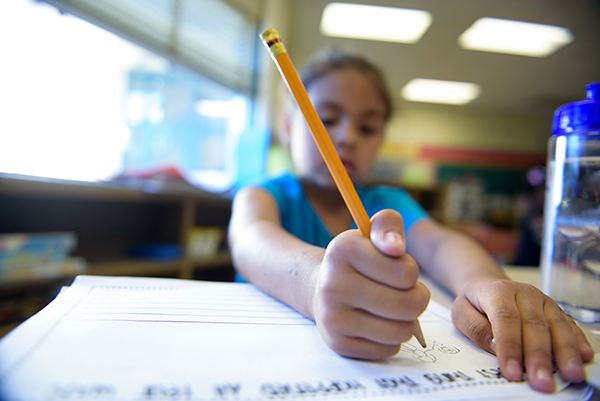MMSD 4K BRIEF
Understanding, Measuring, & Assessing the Development of Interpersonal Skills in 4K
Kristin Shutts, PhD and Charles Kalish, PhD
Summary
The goal of this project was twofold: (1) to understand how teachers currently think about, assess, and develop children’s social skills in 4K; (2) to create and pilot-test a set of direct social skills measures (i.e., assessments requiring enactment of skills).
In the spring of 2017, we interviewed 30 teachers and administrators across 17 different 4K sites. Over the summer, we developed a set of social skills measures, drawing both on teachers’ ideas and insights from the child development literature. In the fall, we administered our measures (see Table 1) to 100 4K students in four different sites. In the coming months, we will test whether children’s performance on our measures is associated with ratings by 4K teachers (GOLD SEL, report card SEL, our own teacher rating scale), as well as the extent to which our measures predict Kindergarten achievement.

![]()
Key findings
- Most educators said developing social skills was an important—if not primary—goal for children in 4K.
- Educators indicated that self-regulation, learning the rules and norms of school, getting along with others (being kind, problem solving, negotiation), and understanding others’ emotions and perspectives were important social skills.
- Teachers reported using a wide variety of techniques to teach interpersonal skills, including lessons and activities suggested by the Creative Curriculum and Second Step. Many teachers also reported looking for opportunities in children’s natural play (e.g., fighting over limited resources) to help children develop social skills. Our informal classroom observations confirmed these reports.
- Nearly every teacher reported that GOLD ratings (including the section focused on SEL) were challenging and time-consuming to complete.
- Teachers varied in how useful they found GOLD: some thought it was merely took time away from teaching and did not provide guidance for instruction; some thought it was primarily useful for thinking about standards and designing their curriculum; others thought it was a useful way to track student progress.
- We observed a good deal of variation in performance by students on our measures.
